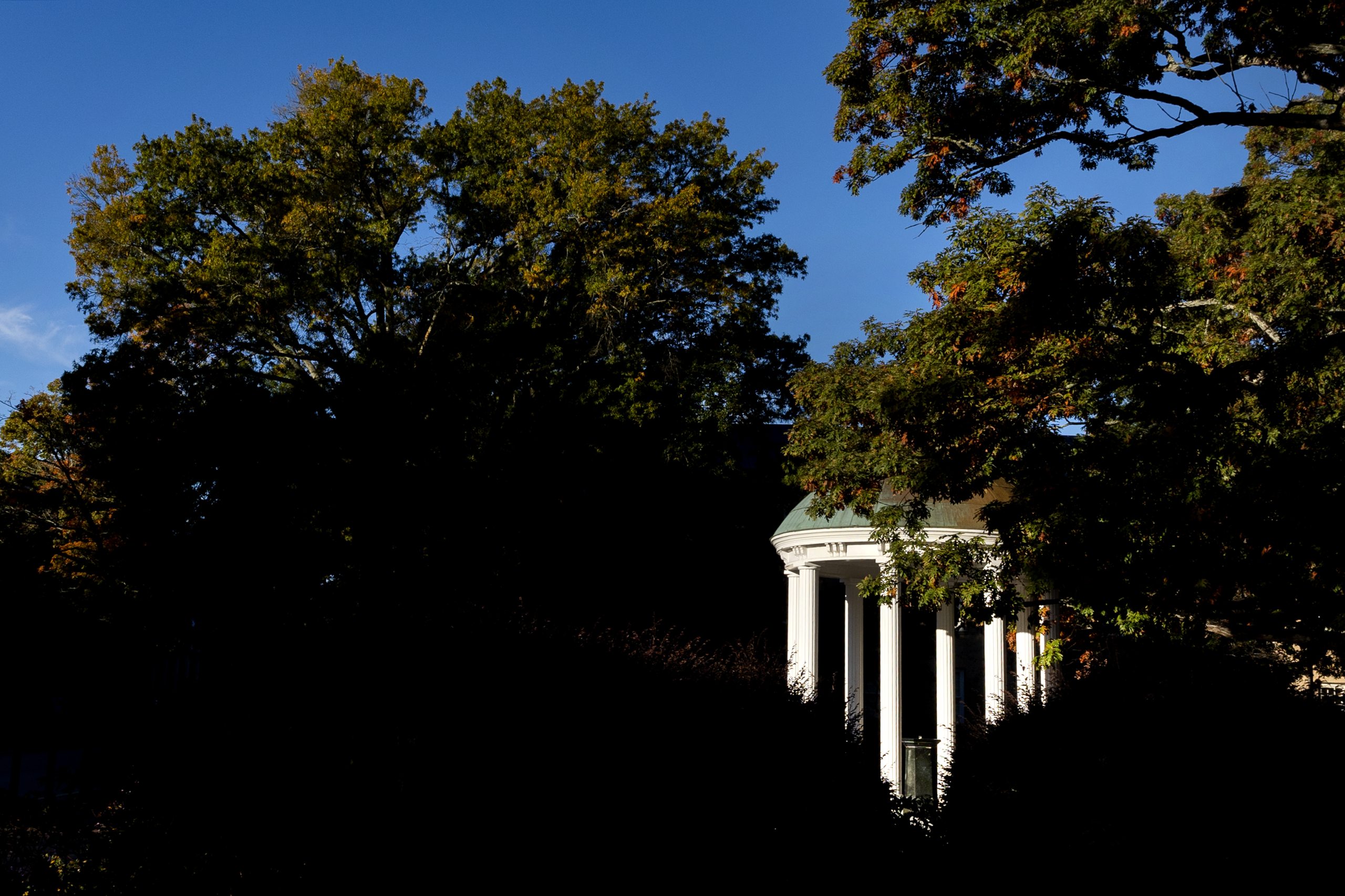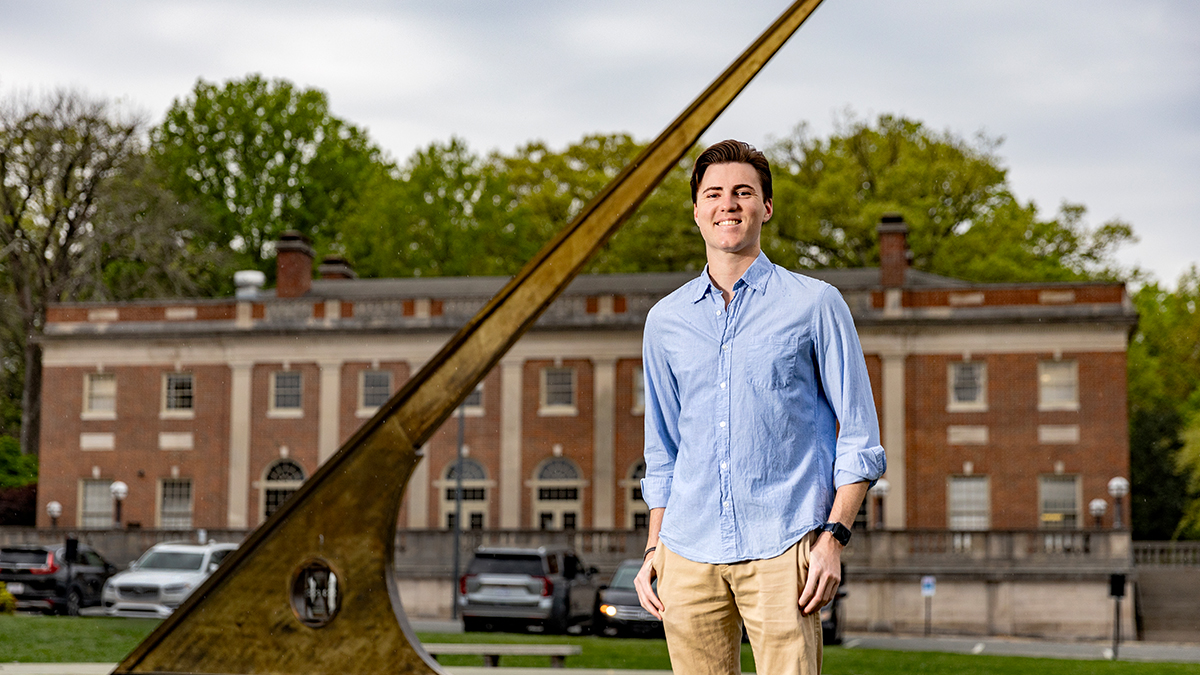Research translation, innovation updates top BOT’s May meeting
Trustees approve new pan-University Institute for Convergent Science, heard about more READDI funding and express enthusiasm for undergraduate research and Innovation District.
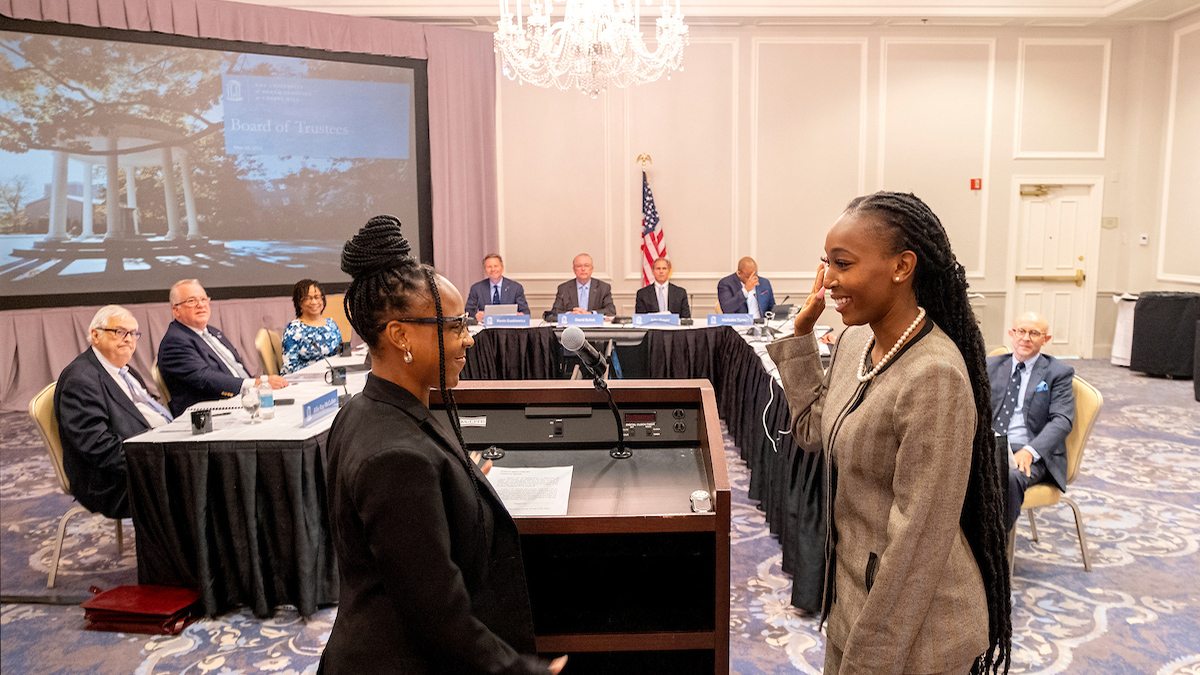
News about University research — how it’s being done and how it’s applied to solve problems — dominated the Board of Trustees meeting May 18-19.
The Office of Undergraduate Research showed how important undergraduates are in making new discoveries in its May 19 presentation. Gabriella Hesse ’22, now a School of Medicine student, presented her research about sex-related tendencies in the development of certain brain diseases. Lauren McShea, a rising sophomore majoring in environmental health sciences, showed how she helped develop low-cost ways to monitor well water for harmful bacteria.
Because so many Carolina faculty are involved in research, “our undergraduates get to be in proximity to that, to take part in that,” said Troy Blackburn, associate dean for undergraduate research. “It’s learning by doing. It’s taking classroom knowledge and using it to solve problems.”
With the full implementation of the new IDEAs in Action curriculum this fall, about 19,000 undergraduates will be required to engage in original research to meet the new research and discovery requirement, Blackburn said.
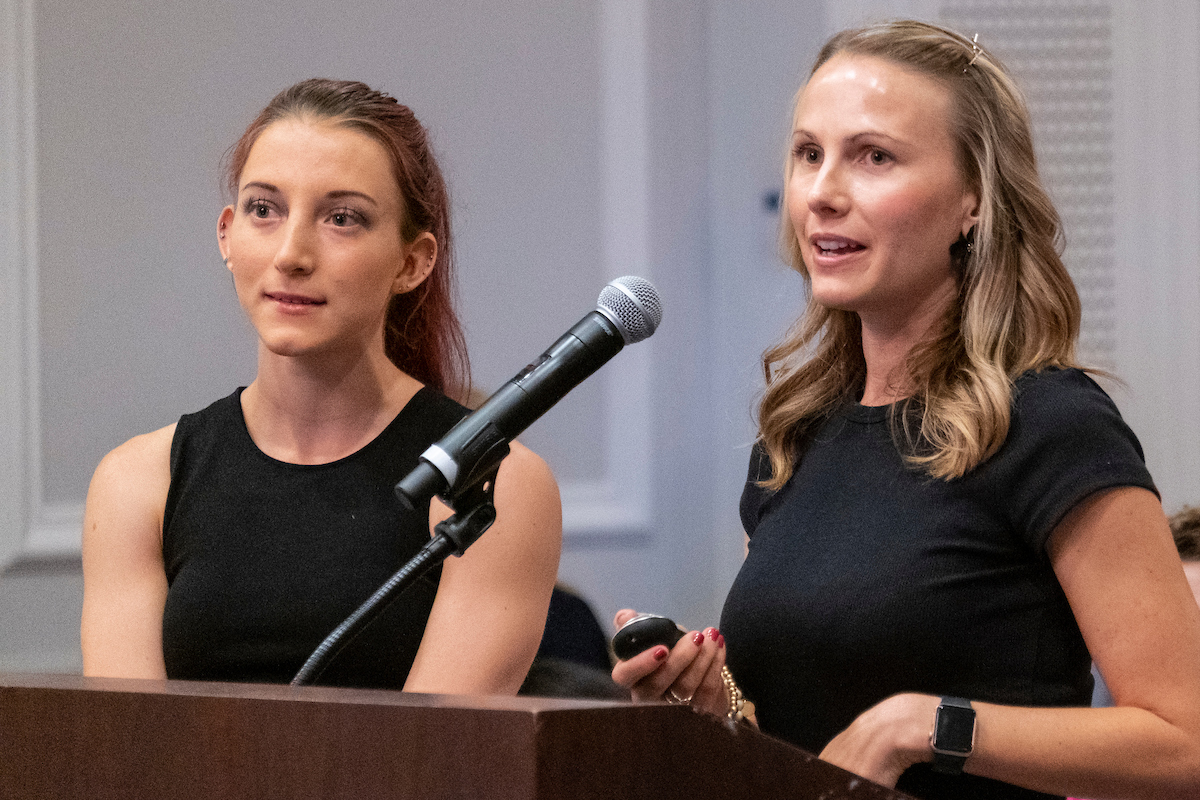
Student Gabriella Hesse, left, and teaching associate professor Sabrina Robertson share research done on Parkinson’s disease. (Jon Gardiner/UNC-Chapel Hill)
Next steps in research
Provost and Chief Academic Officer J. Christopher Clemens spoke about helping researchers develop their work when asking that the Institute for Convergent Science, based in the College of Arts & Sciences since 2017, become a pan-University, interdisciplinary center.
“Our faculty are very good at sponsored research,” Clemens, the institute’s founding director, told the University Affairs committee. But basic research skills are very different from those required for building a company. “We see ICS as a bridge that helps faculty navigate the pathways they must go through if they’re going to take research from the lab and out into the world.”
The institute, located in the Genome Sciences Building, operates in a three-lane research-to-market process called “Ready, Set, Go.” The middle lane is the newest to the University. “It’s called pre-commercial development,” Clemens said. “It awards money based on proposals,” allowing researchers to continue to develop their ideas without having to take entrepreneurial risks.
“It needed to be elevated. It will help us recruit faculty who will grow the research infrastructure and support other initiatives,” said Chancellor Kevin M. Guskiewicz.
The board approved the institute, which will be led by Gregory P. Copenhaver, Chancellor’s Eminent Professor of Convergent Science and associate dean of research and innovation in the College of Arts & Sciences.
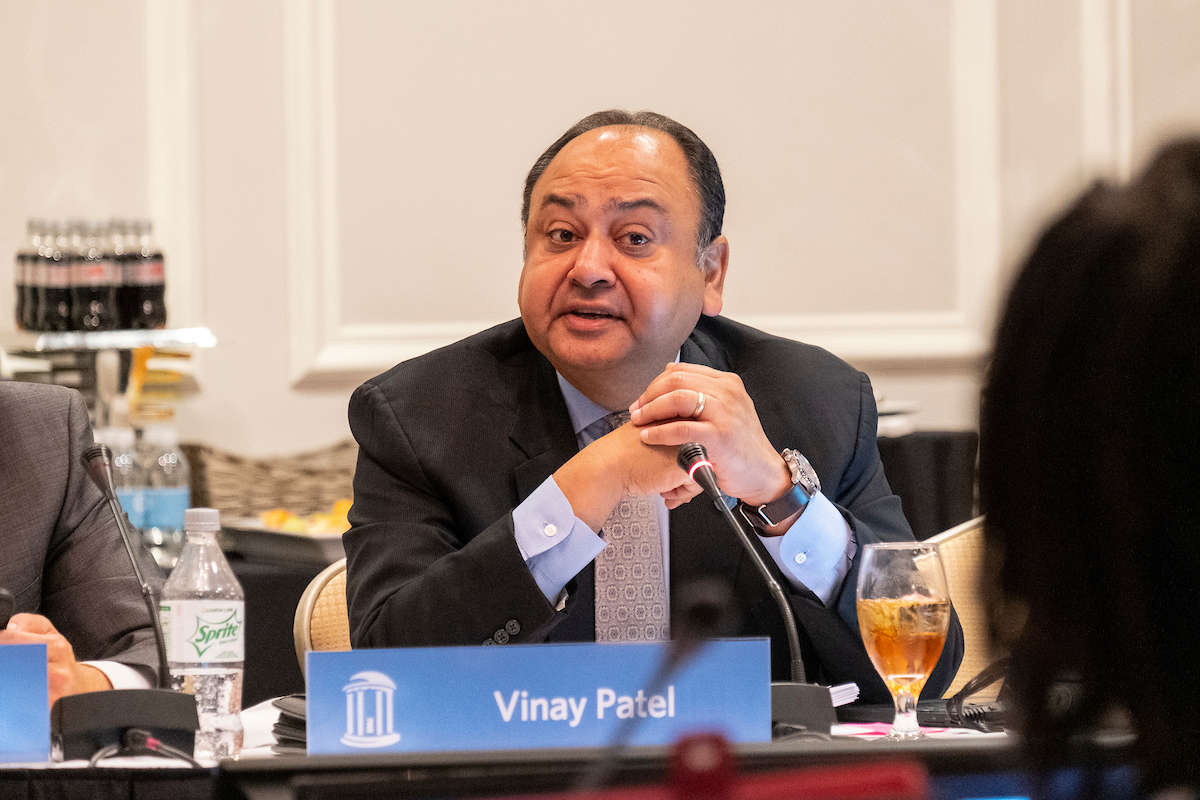
Trustee Vinay B. Patel called the proposed downtown Innovation District “very exciting news, not just for the University but for the entire region.” (Jon Gardiner/UNC-Chapel Hill)
On to innovation and commercialization
Researchers who are ready to be entrepreneurs can call upon the many resources of Innovate Carolina.
“The gap between research and discovery and impact is wide, long, resource-intensive and risky. And this is the place where Innovate Carolina sits,” Michelle Bolas, the University’s chief innovation officer and executive director of Innovate Carolina, told the Strategic Initiatives committee.
One of the department’s recent successes is approval of the 20,000-square-foot Innovation Hub at 136 E. Rosemary St. The downtown Chapel Hill space is being renovated as a new home for Innovate Carolina and a startup accelerator, with co-working and meeting spaces.
The Innovation Hub, scheduled to open in April 2023, and the redevelopment of Porthole Alley will be key components of a proposed downtown Innovation District. “We will be one of the only leading universities with an Innovation District at the edge of our campus, on our front door,” Bolas said.
Trustee Vinay B. Patel called the development “very exciting news, not just for the University but for the entire region,” when he presented an update to the full board.
Board of Trustees Chair David L. Boliek Jr. responded that the new district shows “this board’s commitment to economic development and the vibrancy of Chapel Hill and the 100 block of Franklin Street.”
Guskiewicz announced another tangible result of innovative research attracting funding in his meeting remarks — a $65 million award from the National Institute of Allergy and Infectious Diseases to the UNC Gillings School of Global Public Health. The grant will establish the Antiviral Drug Discovery Center to develop oral antivirals that can combat pandemic-level viruses like COVID-19. The center builds upon UNC’s Rapidly Emerging Antiviral Drug Development Initiative.
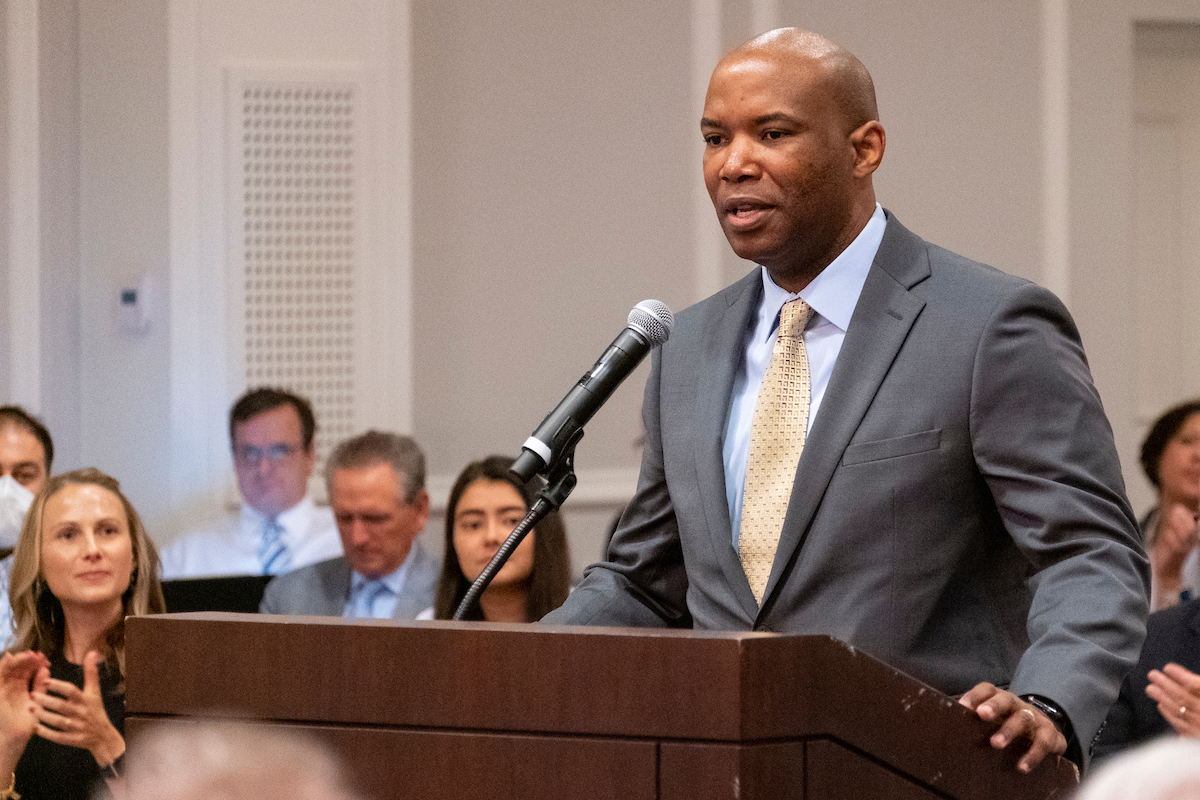
Incoming chief of UNC Police Brian James addresses the board during the UNC Board of Trustees full board meeting May 19. (Jon Gardiner/UNC-Chapel Hill)
A new slate of campus leaders
Guskiewicz introduced trustees to four recently hired members of his leadership team:
- Janet Guthmiller, new dean of Adams School of Dentistry and Claude A. Adams Distinguished Professor, effective Oct. 15.
- James W.C. White, new dean of the College of Arts & Sciences, effective July 1.
- Brian James, new chief of UNC Police, effective July 1.
- Amy McConkey, new director of state affairs.
Not in attendance but also mentioned in the chancellor’s remarks was Valerie Howard, new dean of School of Nursing, effective Aug. 1.
Another new leader at the May meeting was Student Body President Taliajah Vann, who took the oath of office to become an ex officio member of the board for the next year. “I am excited to work within this space,” Vann said.
In addition to the Institute for Convergent Science, the trustees voted to approve:
- Designer selection for the Porthole Alley redevelopment, advance planning spending authority for a new café in Davis Library and other Facilities projects.
- The annual Human Resources Management Flexibility Report and 22 promotions and six new appointments conferring tenure.
- An updated Transportation and Parking Ordinance, with minor changes.
Trustees also received the following reports:
- A budget update and a plan to implement OneStream software as the new campus-wide budget tool, from Nathan Knuffman, vice chancellor for finance and operations.
- An overview of the Office of Institutional Integrity and Risk Management, from George Battle, vice chancellor for institutional integrity and risk management.
- Remarks from Katie Musgrove, Employee Forum chair, who reminded trustees that staff are struggling because of the Great Resignation and a “plague of lingering vacancies” that have left them “overtasked and burned out.”
